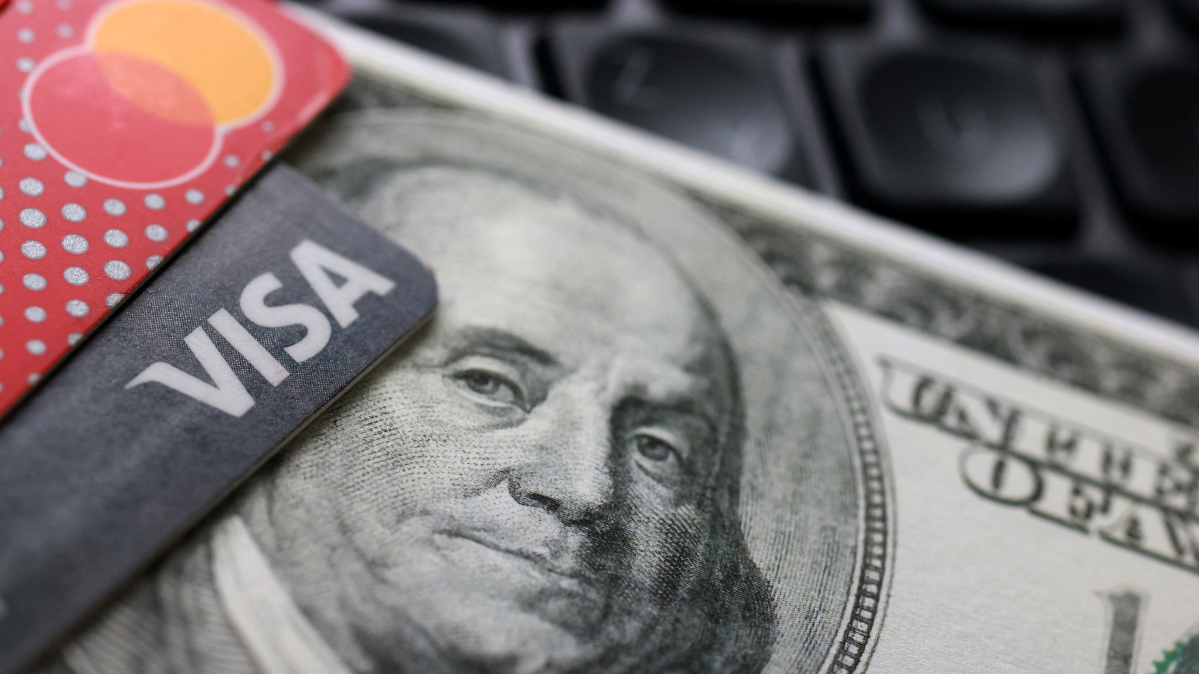Iran’s Islamic regime is harder to dismantle than you might think: Here's why
Iran’s Islamic Republic is backed by decades of institutional strength and the Islamic Revoluti...

Visa and Mastercard announce a $38 billion settlement with merchants over high swipe fees, including fee reductions, surcharges options, and eight-year caps on standard consumer cards, resolving a 20-year antitrust battle.
Visa and Mastercard have agreed to a revised $38 billion settlement with merchants who accused the card networks of overcharging for credit card acceptance, aiming to satisfy a judge who previously rejected a smaller $30 billion deal as inadequate.
The settlement ends two decades of litigation in which merchants claimed Visa, Mastercard, and issuing banks conspired to violate U.S. antitrust laws, primarily through collection of “swipe fees” or interchange fees. However, some merchant groups remain critical, saying the accord does not fully address concerns raised by U.S. District Judge Margo Brodie of Brooklyn, whose approval is required.
Groups opposing the settlement, including the National Retail Federation (NRF) and the Merchants Payments Coalition, argued that businesses would still pay too much, particularly to accept popular rewards cards.
“You can't just suddenly tell more than 80% of your card customers you're not going to take their cards,” said Stephanie Martz, NRF general counsel. According to NRF data, swipe fees in the U.S. totaled $111.2 billion in 2024, up from $100.8 billion in 2023 and more than four times the level in 2009. Key Provisions of the Settlement
Fee Reductions: Visa and Mastercard will lower swipe fees, which averaged 2.35% in 2024, by 0.1% points for five years.
Card Acceptance Options - Merchants can decide whether to accept U.S. cards in categories including commercial, premium consumer (rewards) cards, and standard consumer cards.
Rate Caps - Standard consumer card rates will be capped at 1.25% for eight years, a reduction of over 25%.
Surcharges - Merchants can impose surcharges on card payments, with the ability to charge up to 3%.
Visa stated that the settlement offers meaningful relief to merchants of all sizes, while Mastercard highlighted benefits particularly for smaller businesses. Economic Impact
Two economists retained by the merchant plaintiffs — Nobel laureate Joseph Stiglitz and University of Washington professor Keith Leffler — estimated the settlement could save merchants $38 billion by 2031 by ending the “upward spiral” of swipe fees. Their court filing also projected total potential savings of $224 billion, promoting competition and benefiting consumers. No Admission of Wrongdoing
Visa and Mastercard did not admit any wrongdoing as part of the settlement. Shares of both companies remained largely unchanged following the announcement. Judge Rejected Previous $30 Billion Deal
The earlier $30 billion settlement would have cut swipe fees by about 0.07% points over five years and offered more leeway for merchant surcharges. Judge Brodie rejected it, stating the savings of $6 billion annually were “paltry” relative to what Visa and Mastercard could still charge. She also criticised the retention of the “Honour All Cards” rule, which forces merchants to accept all cards or none.
The revised settlement addresses this concern and also targets anti-steering rules that have historically prevented merchants from directing customers to cheaper payment methods. Support and Opposition
The Electronic Payments Coalition, which includes Visa, Mastercard, and major banks such as Bank of America, Capital One, Chase, and Citibank, supports the settlement. Executive Chairman Richard Hunt noted it would reduce swipe fees below levels proposed in a Senate bill sponsored by Senators Richard Durbin and Roger Marshall, which many in the banking sector oppose.
However, Doug Kantor, General Counsel for the National Association of Convenience Stores and a Merchants Payments Coalition member, criticised the deal for failing to provide banks incentives to lower rates. He said it lets Visa and Mastercard raise fees without limitation and restricts merchants’ ability to negotiate fees with different banks.
Follow the latest developments and global reaction after the U.S. and Israel launched “major combat operations” in Iran, prompting retaliation from Tehran.
Ayatollah Alireza Arafi has moved into a pivotal constitutional role following the death of Supreme Leader Ayatollah Ali Khamenei, becoming the clerical member of Iran’s temporary leadership council under Article 111 of the Constitution of the Islamic Republic of Iran.
Governments across the region responded swiftly to Israel’s strikes on Iran, closing airspace, issuing travel advisories and activating contingency plans amid fears of escalation.
The United States and Israel have carried out large-scale strikes on Iranian leadership and military targets, with Iranian state media confirming that Supreme Leader Ayatollah Ali Khamenei was killed.
Following the U.S.-Israel strikes, Iran has called for an urgent meeting of the United Nations Security Council to be held on Monday (2 March), and vowed strong retaliation to the attacks. Touraj Shiralilou sent this update from Tehran.
The European Commission sees no immediate impact on the European Union's security of oil supply from the escalating conflict in the Middle East, it said in an email to EU governments, seen by Reuters on Monday (2 March).
Paramount Skydance emerged as the winner in a months-long battle to acquire Warner Bros Discovery after streaming giant Netflix on Thursday refused to raise its bid for the storied Hollywood studio.
Global debt surged to a record $348.3 trillion at the end of 2025, after nearly $29 trillion was added over the year, marking the fastest annual increase since the pandemic, according to the Institute of International Finance (IIF) report released on Wednesday.
Millions of Colombian roses have arrived in the United States just in time for Valentine’s Day, keeping the country on track as the world’s second-largest flower exporter. Between 15 January and 9 February, Colombia shipped roughly 65,000 tons of fresh-cut blooms.
Russia’s car market is continuing to receive tens of thousands of foreign-brand vehicles via China despite sanctions imposed after Moscow’s full-scale invasion of Ukraine in 2022, a journalistic investigation has found.
You can download the AnewZ application from Play Store and the App Store.

What is your opinion on this topic?
Leave the first comment